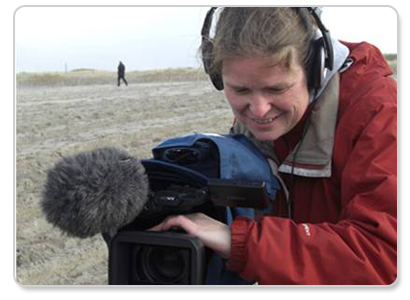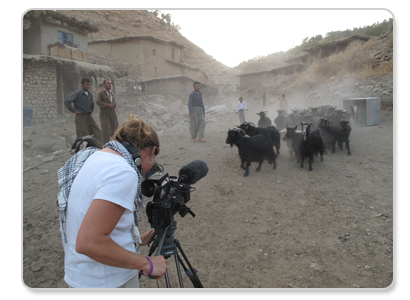Environmental Filmmaker to Lecture at OSU
Tuesday, September 29, 2009
(Sept. 29, 2009, STILLWATER, Okla.) – Environmental filmmaker Joshka Wessels will
discuss an ancient water management technique that is being resurrected at 3:30 p.m.
on Monday, Oct. 5 at Oklahoma State University.
Wessels’ lecture is titled “Combining Film and Human Geography: Qanats in the Middle
East” and takes place in Room 313 of the Classroom Building. It is free and open to
the public.
Qanats are networks of underground aqueducts that originated in Iran around 2,500
years ago to bring water from subterranean highland water sources to lowland users.
In the search for sustainable development, the ancient technology of managing water
is gaining new attention in dry regions particularly in countries like Iran, Oman,
Iraq and Morocco, says Dale Lightfoot, professor and head of the geography department
at OSU whose expertise focuses on qanats.
“Dr. Wessels’ lecture will attract a wide range of people whether they are interested
in filmmaking, water conservation techniques or different cultures,” he said. “Her
lecture will offer a unique blending of visual anthropology, human and environmental
geography and her experiences with documentary filmmaking in some of the most remote
and challenging places on earth.”
Many of Wessels’ films have been shown by BBC World and have earned international
awards along the way. While she specializes in the Middle East and water films, her
work also explores rain forests, timber trades, HIV/AIDS, sanitation, indigenous land
rights and fishing industries.
This is Wessels’ first American appearance. The Dutch filmmaker has a doctorate in
geography from the University of Amsterdam. She is fluent in Dutch, English, German,
French and Arabic. To learn more, phone (405) 744-6250. The presentation is made possible
by the Social Sciences Lecture Series in the OSU College of Arts and Sciences. Visit
cas.okstate.edu.


